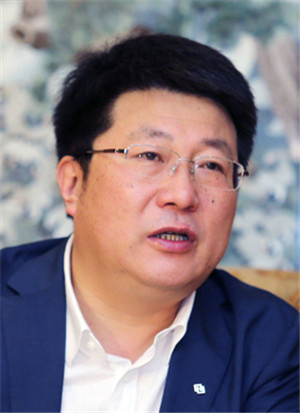 |
|
Zhao Weiguo, chairman of Tsinghua Unigroup Ltd |
The chairman of chip giant Tsinghua Unigroup Ltd has insisted the Taiwan leadership transition will not affect the company's recently announced investments on the island.
His comments came as the Taiwan authorities were reported to have begun reviewing the Beijing-based firm's proposals to buy stakes worth nearly $1 billion in two Taiwan chip packaging and testing firms.
Zhao Weiguo, the Unigroup chairman, said: "No matter who is the leader of Taiwan, there is always a desire there for development.
"There is no chance of Taiwan growing unless there is outside investments. Therefore, it will won't affect our business."
The State-owned firm revealed last year it was investing $365 million in ChipMOS Technologies Inc, and around $600 million in Powertech Technology Inc, for 25 percent stakes in each.
The deals would make Unigroup the largest shareholder in Powertech and second largest in ChipMOS.
But both have been cast into doubt after Taiwan's new leader Tsai Ing-wen was inaugurated on Friday. Tsai had earlier claimed the deals were a "huge threat" for Taiwan.
Zhao added: "Investing into Taiwan firms can facilitate and accelerate our development.
"But even if these deals are disapproved, we can do chip packaging and testing ourselves, and it would be a loss to Taiwan."
Unigroup has said it plans to spend 300 billion yuan ($47 billion) over the next five years on research and development of chip technologies as well as acquisitions, in a bid to become one of the world's top-three chipmakers, which will put it on a par with global giants such as Intel Corp, Qualcomm Inc and Samsung Electronics Co.
The intensified efforts to boost its chip-related resources come as the mainland seeks to reduce its reliance on imported technology, amid worries that it posed a risk to national security.
Roger Sheng, a senior analyst at research firm Gartner Inc, currently on a business trip to Taiwan, said it has become increasingly difficult for mainland firms to acquire or invest in Taiwan firms since Tsai took office.
"It is not a unique problem for Unigroup, but an issue all mainland companies are going to face," Sheng said.
"The Taiwan semiconductor industry is very cautious and anxious about mainland investment." But he added it was also tricky for Unigroup to engage in chip packaging and testing on its own.
